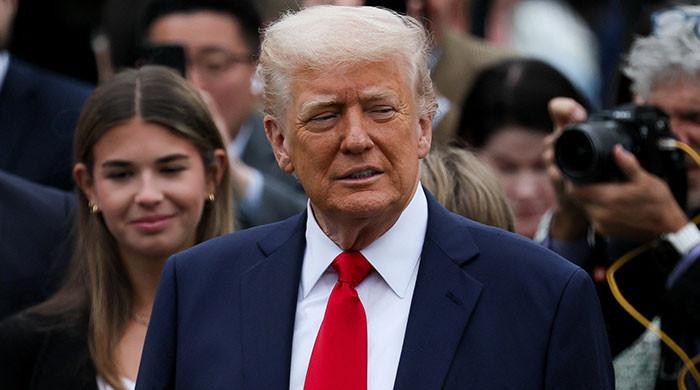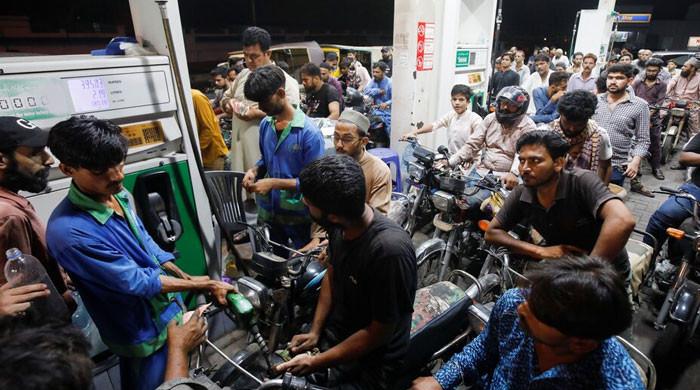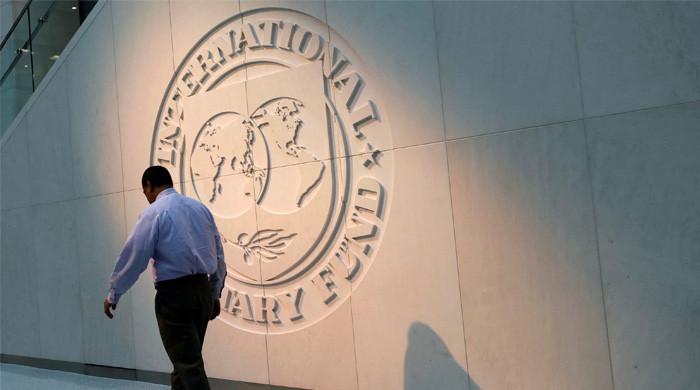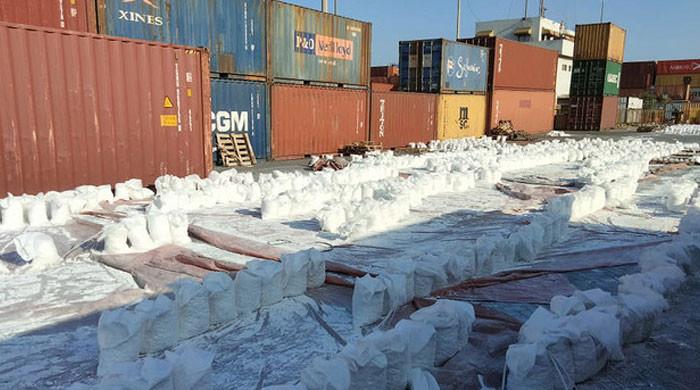How Pakistan can help the education sector in Afghanistan
Pakistan has done well by stepping up its education diplomacy and increasing number of scholarships available for Afghan nationals
December 22, 2021
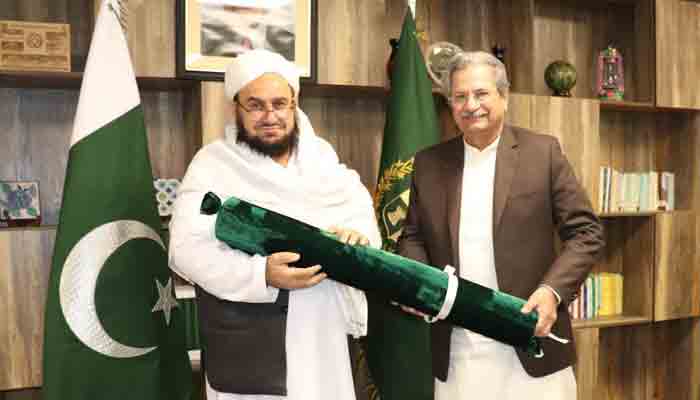
Let me say up front that this op-ed is not about helping the Taliban; it is about helping the Afghan (and Pakistani) people. Anyone who has read me even occasionally will acknowledge that I do not see any charm in living life as an ordinary person in an Afghanistan governed by the unrestrained vision of the Taliban.
By August, the official deadline for the pull-out of American troops, people (especially educated people who had even a little hope to be able to make it abroad) were in despair. Estimates put the number that fled the country at around 100,000. We saw Afghans desperately hanging on to and falling from American C-17 transport planes taking off from Kabul airport. It has been four months since that chaotic American and Allied withdrawal, and since then the world has been carefully watching if the Taliban are able to transition from a resistance fighting force to a representative government able to serve its people, and what rights and status it will accord its 19 million women and girls.
In July of this year, I penned an op-ed titled ‘Education Diplomacy’ in this paper. It looked at how Pakistan can effectively and at little cost aid Afghanistan in a way that serves the welfare of its people while also furthering our interests by earning the goodwill of its population.
Fast forward five months and the Taliban appear clueless about getting on with the practical challenges of keeping the lights on and providing basic services to its population. The people’s patience is beginning to wear thin, and time is running out. A large segment of Afghans fleeing their country in the run up to the American and Allied force withdrawal comprised educated people – precisely the people that needed to be retained the most. So far, Pakistan has done well by stepping up its education diplomacy and has ramped up the number of scholarships available for Afghan nationals and refugees to 4,500, covering mostly undergraduate programmes and others specifically in the areas of teacher training, nursing and technical and vocational skills training – all critical to staff positions for the delivery of basic social services and helping Afghan people acquire employable skills.
Last week, the Taliban’s minister for higher education visited the Ministry of Federal Education and Professional Training in Islamabad and met with his Pakistani counterpart. The minister and three officials accompanying him all received their education in different institutions in Pakistan. He reiterated the need for Pakistan to invest in Pakistan to foster goodwill among a generation that does not know Pakistan the way he does.
Among the requests made by the minister on this visit was one for a faculty development programme for Afghan faculty on Pakistani university campuses. They would also like to put more thought and planning into the specific undergraduate programmes Afghan scholarship recipients go into to match the country’s needs – engineering, agriculture, medicine, etc. He acknowledged several times that the development of Afghanistan depends on the education of its youth. Another interesting request was to make provisions to cater to the educational needs of Afghan immigrants who have been settled in Khyber Pakhtunkhwa and Balochistan for a long time. There was even discussion about opening a satellite campus of Allama Iqbal Open University in Afghanistan.
In his view, the qualified, educated manpower developed in the last 20 years was “taken away” by the West when their forces left (not terrified into fleeing by the history of the Taliban) leaving behind a huge gap – one that Pakistan can help to fill. The onus of proving to the Afghan people, especially the youth, that there is a future for them in Afghanistan is very much on the Taliban. Such an acknowledgment is good to hear. Yet, the actions on the ground in Afghanistan make me wonder if he is talking about the entire youth or only the half that is male. It is now a well-known evidence-backed fact that countries that make half their workforce sit out the labour market and make them disappear from view make for fragile states.
The government of Pakistan is doing the right thing by offering programmes that directly benefit Afghan nationals and contribute to building an educated, productive and, therefore, empowered citizenry. However, like exchange and scholarships programmes of countries everywhere (for example, Rhodes, Chevening, and Fulbright), ours too must be a vehicle for communicating our positive values.
In the Pak-Afghan context that should mean not surrendering our core values, and communicating that Pakistan considers education to be an equal right for both men and women. We could signal that by reserving, say, 50 percent of the opportunities we offer for women candidates. This would also start addressing the shortage of qualified women in areas like nursing, medicine, K-12 and higher education, and would do the Taliban a favour, even if they are not willing to accept it yet. Today, the Ministry of Federal Education in Islamabad is led by Secretary Naheed Durrani, a strong woman dedicated to the cause of education who sits at the head of the table and makes us proud. There is no better way to convince our neighbours of the importance of education for women and the country than by examples.
I spoke to Ayesha Tanzeem of the Voice of America, who has been covering the transition of power to the Taliban from the ground in Kabul over the past few months. I asked her what she saw in terms of education participation. She was able to validate other news reports that said that conditions are very uneven across Afghanistan. While some provinces opened girls secondary and higher-secondary schools, many did not. The fractious nature of the rule in Afghanistan, which has been its feature even under previous governments, makes it difficult to enforce a single policy in education. In fact, a push for a single nationwide policy will quite likely be the lowest common denominator of what is possible, which is not a desirable outcome.
This brings up a larger question being debated right now: Should aid of any kind be given conditionally? I believe the answer is yes. Schools in Afghanistan were operating before the Taliban takeover when the greatest security threats in the country were the Taliban themselves. The decision to close schools for girls appears to be not due to a material shortage but ideological. An ideology, culture or tradition that does not serve the well-being of its people but makes their lives miserable ought to die anyway.
As the Taliban are discovering, the Afghan people – women in particular – of 2021 are not the same they were in 2001. Despite all the fighting of the last two decades, people have had a taste of life in a freer society. Two generations have grown up going to schools and colleges, and they will not want to give up that right so easily. Like the FATF made Pakistan, if you do not clean up your act on your own, someone will come and make you and in greater detail than would have been necessary had you done it voluntarily from the start.
The world is watching the fate of women in the Taliban’s Afghanistan and has conditioned formal recognition of their government on this and other factors. For Pakistan, the test is to not let down the young people of Afghanistan and push for the cause of Afghan women and girls. Such education diplomacy is needed not only to communicate our values to our neighbours, but our own young people and the world.
Our government, by working through the Ministry of Federal Education, has a window of opportunity to signal and demonstrate the kind of relationship it wishes Pakistan to have with the Afghan people. For the rest of the world, the test is to move beyond fancy rhetoric, decouple support for the Afghan people from support for the Taliban regime and pitch in and show them that they are not forgotten.
The writer is a technical adviser for education. Views are her own.
Originally published in The News






